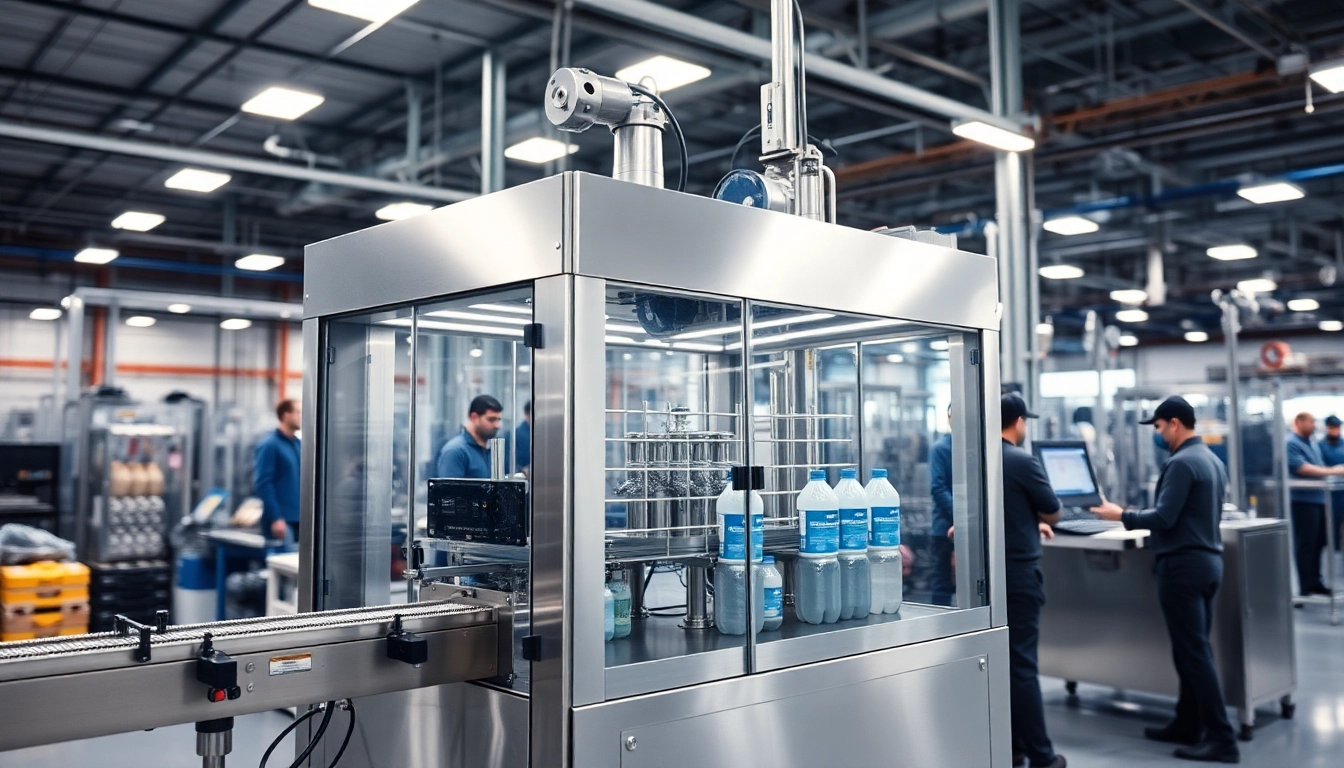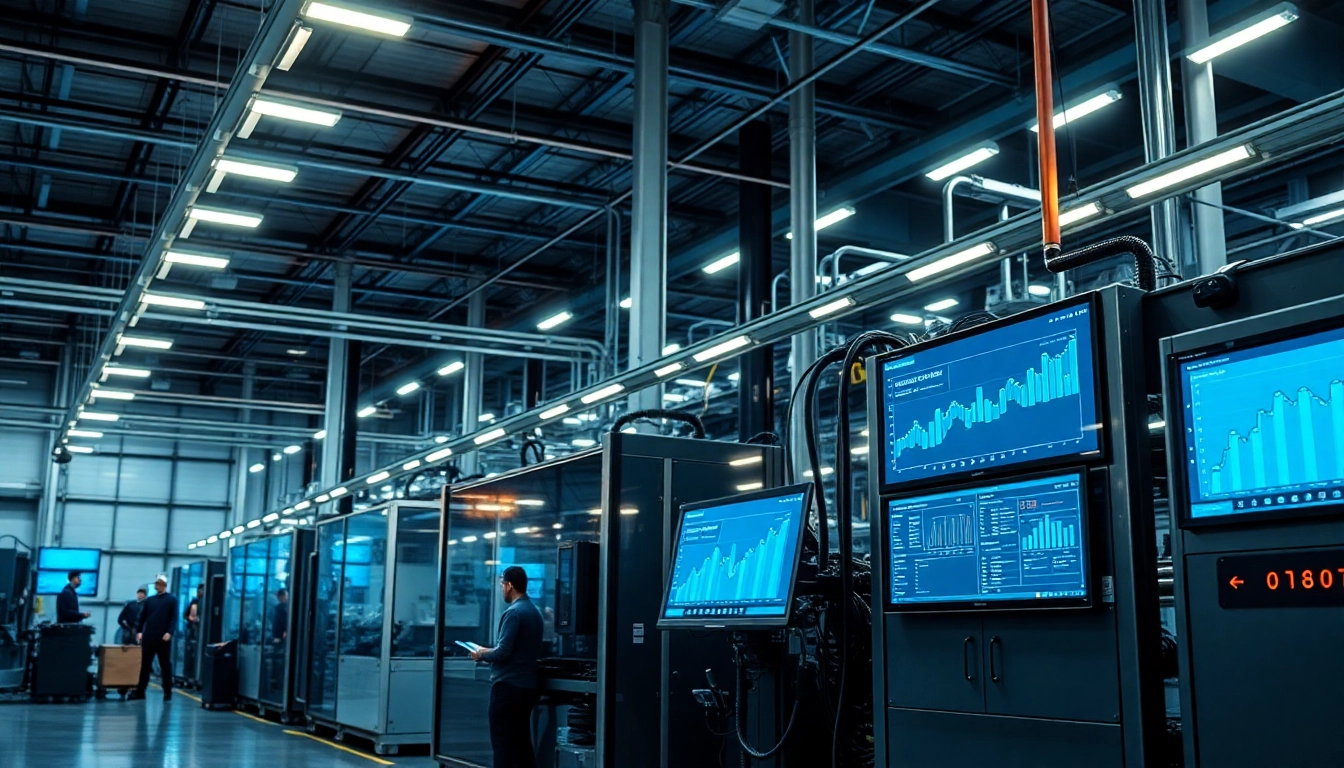Introduction to Liquid Packaging Machines
In the modern manufacturing landscape, efficiency, reliability, and precision in packaging are of utmost importance. This is particularly true in industries requiring liquid products, where the choice of machinery can profoundly impact operational success. A Liquid Packaging Machine Supplier provides businesses with the tools necessary to automate this crucial aspect of production. Within this article, we will delve into the realm of liquid packaging machines, discussing their features, applications, challenges, and future trends.
What is a Liquid Packaging Machine?
A liquid packaging machine is specialized equipment designed to automate the packaging process of liquid products. These machines can handle a variety of liquids, including water, juices, sauces, chemicals, and pharmaceuticals. They are engineered to fill, seal, and label containers efficiently, ensuring minimal contamination and enhanced shelf life for the products being packaged.
Applications Across Industries
Liquid packaging machines are widely utilized across multiple sectors, including:
- Food and Beverage: For packaging juices, sauces, dairy products, and beverages.
- Pharmaceutical: Used to package syrups, liquid medicine, and health supplements.
- Chemical: For packaging cleaning agents, solvents, and industrial liquids.
- Personal Care: Employed for packaging lotions, shampoos, and other liquid hygiene products.
Importance of Quality Equipment
The success of a packaging operation largely hinges on the quality of the equipment employed. Quality liquid packaging machines enhance productivity, reduce waste, improve safety, and maintain product integrity. Investing in high-quality machines not only minimizes downtime due to mechanical failures but also supports compliance with industry regulations, which can vary significantly across different sectors.
Key Features of Liquid Packaging Machines
Automation and Efficiency
One of the primary advantages of liquid packaging machines is their ability to automate the packaging process. Automation leads to increased efficiency by:
- Speed: Machines can fill containers at a much quicker rate than manual labor.
- Consistency: Automated systems provide uniformity in packaging, ensuring that every container is filled precisely.
- Labor Reduction: Automation minimizes the need for manual labor, allowing businesses to allocate personnel to other critical tasks.
Types of Liquid Packaging Technologies
There are several technologies used in liquid packaging machines, based on the type of liquid and the desired packaging method:
- Volumetric Filling: Measures a specific volume of liquid, making it suitable for consistent products like beverages.
- Piston Filling: Utilizes a piston mechanism to fill thick and viscous liquids.
- Pump Filling: Ideal for thin liquids, employing positive displacement pumps for precision.
- Gravity Filling: Relies on gravity to fill containers, often used for very thin liquids.
Custom Solutions for Diverse Needs
Liquid packaging suppliers often provide customization options to address the unique requirements of different businesses. This could range from the type of filling mechanism to the configuration of the packaging line. Custom solutions ensure that businesses can achieve their production goals while maintaining high standards of quality and efficiency.
Choosing the Right Liquid Packaging Machine Supplier
Evaluating Technology and Reputation
When selecting a liquid packaging machine supplier, it is crucial to assess their technological capabilities and industry reputation. A reputable supplier should offer advanced machinery that integrates seamlessly with your existing production line and conforms to the latest technological standards.
Researching reviews, client testimonials, and case studies can provide insights into the supplier’s reliability and the performance of their machines. It’s also beneficial to compare the features of different suppliers’ equipment to determine which aligns best with your operational needs.
Customer Support and Service
Exceptional customer support can significantly affect your operational efficiency. A supplier that offers comprehensive customer service—including installation, maintenance, and troubleshooting—ensures you can maximize the lifespan and performance of your equipment. Before finalizing a supplier, assess their customer service policies and response times to ensure they meet your expectations.
Price vs. Value Analysis
While price is an essential factor, it should not be the sole consideration when choosing a liquid packaging machine supplier. Evaluate the value that the equipment offers, including factors such as durability, efficiency, and the quality of customer support. Sometimes, investing in a more expensive but reliable machine can lead to lower operational costs over time due to fewer repairs and higher productivity levels.
Common Challenges in Liquid Packaging
Addressing Product Variability
One challenge in liquid packaging is dealing with product variability. Changes in product viscosity, density, and consistency can affect the accuracy of the filling process. To address this, manufacturers should choose packaging machines capable of adjusting settings to accommodate different product characteristics. Additionally, regular testing and calibration of machines can help maintain consistency in packaging.
Maintenance and Downtime Issues
Machines can face wear and tear over time, leading to maintenance issues and unexpected downtime. To mitigate this, establish a routine maintenance schedule that includes regular inspections and servicing. Engaging with a supplier who offers warranties and maintenance support can also extend the life of the machinery and minimize unexpected costs.
Regulatory Compliance Considerations
For many industries, adhering to regulatory standards is essential. Compliance with local and international regulations regarding food safety, environmental impact, and occupational safety should be fundamental when selecting liquid packaging machines. Ensure that your supplier is knowledgeable about industry-specific regulations and can provide machines that help facilitate compliance.
Future Trends in Liquid Packaging Technology
Sustainability Practices
The drive towards sustainability is reshaping the packaging industry. More companies are seeking liquid packaging solutions that minimize environmental impact through the use of recyclable materials, energy-efficient operations, and less waste generation. Suppliers are responding by developing machines that support these practices, integrating technology that helps businesses meet sustainability goals.
Smart Machine Integration
The advent of Industry 4.0 has paved the way for smart machines that leverage advanced technologies such as IoT, AI, and data analytics. These smart machines can optimize processes, predict maintenance needs, and enhance operational efficiency. As these technologies become more affordable and accessible, it is likely that more manufacturers will adopt smart liquid packaging solutions to stay competitive.
Adaptations to Market Demands
The packaging industry is constantly evolving, driven by changing consumer preferences and market demands. Suppliers must remain agile, adapting their machinery and solutions to accommodate new product types, smaller batch sizes, or customized packaging. Future trends will likely emphasize flexibility, enabling manufacturers to pivot quickly in response to market shifts.



